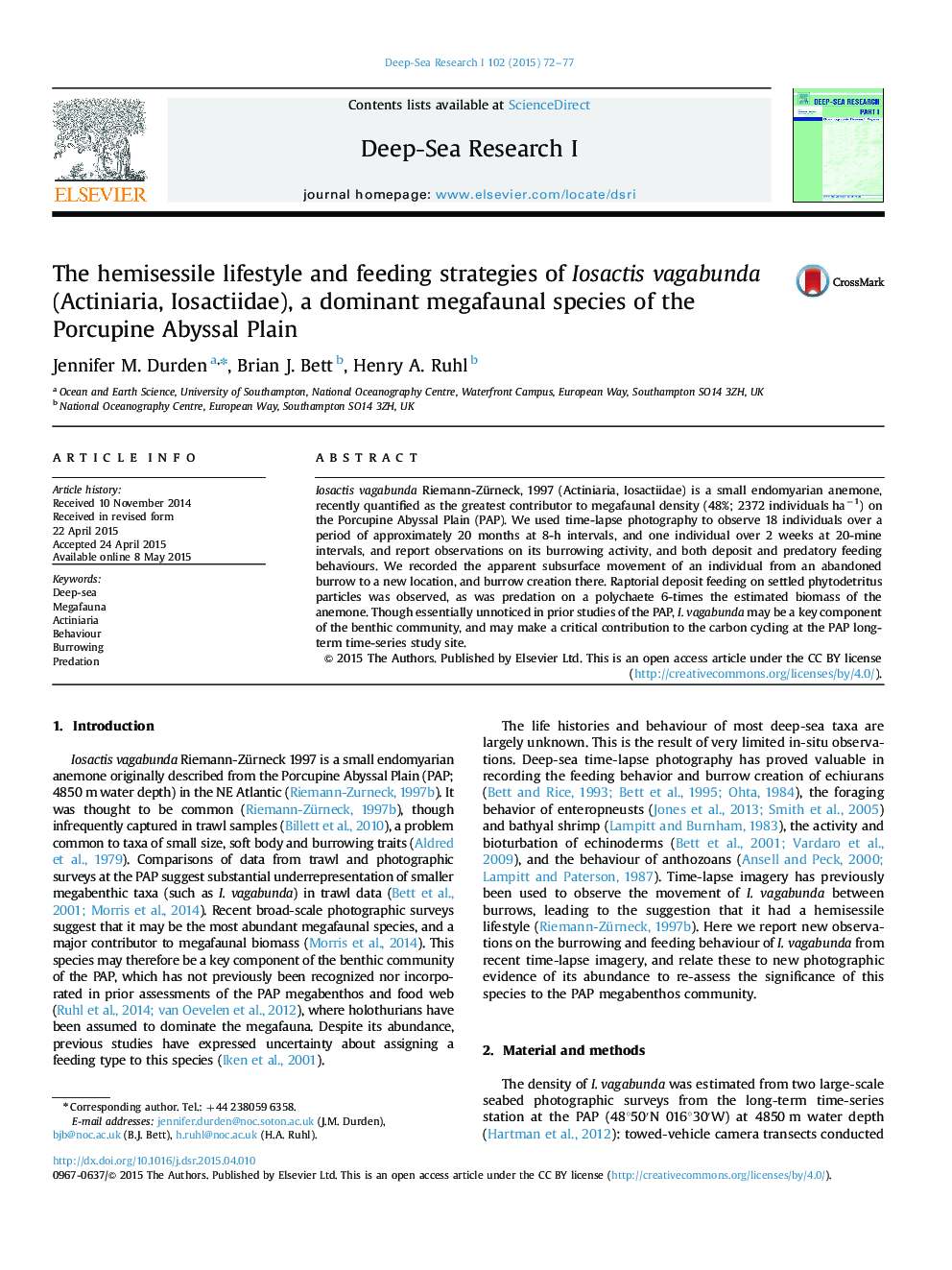| Article ID | Journal | Published Year | Pages | File Type |
|---|---|---|---|---|
| 6383400 | Deep Sea Research Part I: Oceanographic Research Papers | 2015 | 6 Pages |
Abstract
Iosactis vagabunda Riemann-Zürneck, 1997 (Actiniaria, Iosactiidae) is a small endomyarian anemone, recently quantified as the greatest contributor to megafaunal density (48%; 2372 individuals haâ1) on the Porcupine Abyssal Plain (PAP). We used time-lapse photography to observe 18 individuals over a period of approximately 20 months at 8-h intervals, and one individual over 2 weeks at 20-mine intervals, and report observations on its burrowing activity, and both deposit and predatory feeding behaviours. We recorded the apparent subsurface movement of an individual from an abandoned burrow to a new location, and burrow creation there. Raptorial deposit feeding on settled phytodetritus particles was observed, as was predation on a polychaete 6-times the estimated biomass of the anemone. Though essentially unnoticed in prior studies of the PAP, I. vagabunda may be a key component of the benthic community, and may make a critical contribution to the carbon cycling at the PAP long-term time-series study site.
Related Topics
Physical Sciences and Engineering
Earth and Planetary Sciences
Geology
Authors
Jennifer M. Durden, Brian J. Bett, Henry A. Ruhl,
